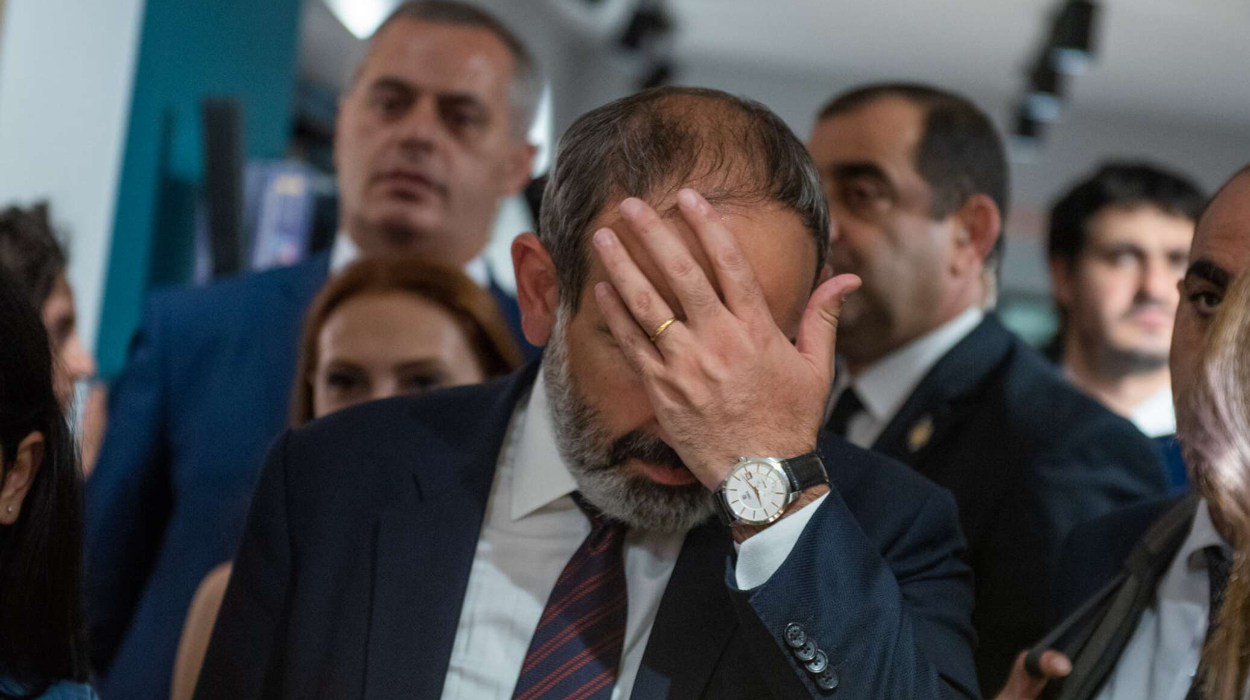Exposing Hypocrisy: Pashinyan's Contradictions on Soviet Legacies

Armenian Prime Minister Nikol Pashinyan.
SUKHUM / AQW'A ― Armenian Prime Minister Nikol Pashinyan recently expressed his unwavering support for what he referred to the unity and state integrity of Georgia. With these statements in mind, let us read a few excerpts from an interview Pashinyan gave to Al Jazeera Television only 3 years ago.
"...Nagorno-Karabakh was handed over to Soviet Azerbaijan but not to Soviet Armenia as a result of Stalin’s arbitrary decision."
"As democratisation commenced in the Soviet Union, the Armenians in Nagorno-Karabakh sought to regain their rights and reunify with the Republic of Armenia, but this move was met with brutal violence by the Soviet Union and Azerbaijan against the peaceful population..."
"If we adopt Azerbaijan's interpretation of international law, we should be able to say that Azerbaijan is part of the Soviet Union. But since there is no such state anymore, Azerbaijan cannot be part of the Soviet Union. Similarly, for the Nagorno-Karabakh Autonomous Region, Soviet Azerbaijan, of which it was once a part, no longer exists..."
If Mr. Pashinyan, contrary to what he says, is satisfied with Stalin's Soviet borders, he should either shut his mouth and resign or should have surrendered Karabakh and its people, whom he left all alone, to Azerbaijan much earlier. At least the people of Nagorno-Karabakh would have suffered less.
As for Abkhazia, we feel obliged to give Mr. Pashinyan a brief history lesson:
In the period of 1917-1918, Abkhazia was part of the Mountainous Republic of the Northern Caucasus. On 9 February 1918, the Abkhazian National Congress signed a treaty with the Georgian National Congress, which represented the Special Transcaucasian Committee. At the time of the signing, Georgia was de facto under the control of the Transcaucasian Commissariat, while Abkhazia was a part of the confederative Mountain Republic. This treaty recognised an “indivisible Abkhazia within frontiers stretching from the River Ingur to River Mzymta (later to Psou River)”. However, this did not stop the Georgian Democratic Republic that was declared in May 1918 from sending troops to “meet the Bolshevik menace” in June 1918 with German backing. During this era, the Mensheviks, having taken control of Georgia's government, annexed Abkhazia through a blend of political tactics and military force, specifically using General Mazniashvili’s troops' 'fire and sword' approach.
By March 1921, a significant shift occurred when the Bolsheviks ousted the Mensheviks in Georgia. This led to the establishment of the Abkhazian Soviet Socialist Republic under the leadership of Nestor Lakoba. On May 21, 1921, the Georgian Bolshevik government formally recognised Abkhazia's independence.
However, within the same year, under the pressure of Stalin (Iosif Dzhugashvili) and other influential Georgian Bolsheviks, Abkhazia was compelled to sign a union treaty (a form of confederation) with Georgia.
Despite this agreement, Abkhazia joined the Transcaucasian Federation as an EQUAL PARTNER alongside Georgia, Armenia, and Azerbaijan. It was as a member and a subject of international law within the Soviet Union that Abkhazia participated in the formation of the USSR in 1922, acting as a sovereign Abkhazian Republic.
A pivotal change occurred on February 19, 1931, when Stalin, a Georgian, and Beria, a Mingrelian, demoted Abkhazia to the status of an autonomous republic within Georgia. Abkhazia is arguably the only republic whose political status was downgraded rather than upgraded by Stalin. (Even during the period from 1931 to 1991 when Abkhazia was part of the Georgian SSR as an autonomous republic, both Abkhazia and Georgian were parts of the administrative structure of the USSR. Notably, during this time, Abkhazia was NOT part of an independent Georgian polity.) This period marked the beginning of what became known as the Stalin-Beria terror in Abkhazia, signaling a significant turn in the region's political and social landscape.
During the period of enforced Georgianisation (1937-1953), mass immigration into Abkhazia from Western Georgia (Mingrelia) was carried out by Stalin and Beria. Thousands of intellectuals were persecuted, and the Abkhaz were deprived of the right to teach their children in their native language; all Abkhaz schools and institutions were closed from the school-year 1945-46. The Abkhaz were compelled to study only in Georgian schools.
If Mr. Pashinyan stands by the words he spoke in the interview, then based on these FACTS, he should support the independence of Abkhazia, not Stalin's Soviet Georgian borders. But if he denies what he said despite the video recording, he will go down in history not only as a failure and unreliable but also as a turncoat.
+ See also: Abkhazian Deputies Critique Pashinyan’s Stance on Georgian Territorial Claims